Free-wheeling fast and loose
When it comes to road safety, drama characters could not care less
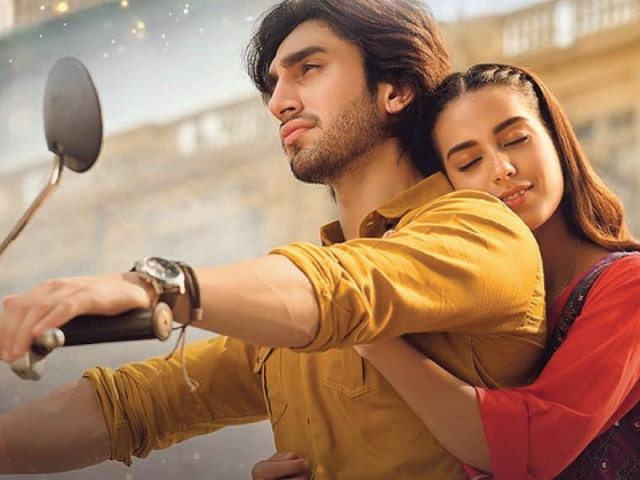
Last week, we discussed the troubling trope whereby the denizens of dramas rush to take their own lives. Today, we are going to take it down a notch and explore the other questionable traits our beloved characters exhibit without a care in the world, such as their aversion to seatbelts and habit of taking their eyes off the road.
Of course, in the instances of these (relatively) minor sins, we first have to decide whether dramas deserve any of the blame at all in the first place. Does art mirror life? Or does life mimic art? Miranda Priestly from The Devil Wears Prada will tell you that art begets life – at least if her monologue on cerulean sweaters is to be taken seriously.
But closer to home, as far as dramas are concerned, it appears to be the other way around. If our national obsession with malevolent mothers-in-law is any indication, our shows hold up a mirror to our culture and societal norms. But like Miranda's cerulean sweater, those same dramas also hold the power to subliminally affect the minds of the millions – and that is where our problems begin.
Stirring something on the stove? Do as Sharjeena does in Kabhi Main Kabhi Tum and leave your locks undone. This will allow you to temper your salan with a stray hair (or three). Want to ascertain whether a woman is trustworthy? Check out her clothing and observe her speech. If she favours the English language and wears Western outfits, she may as well hold up a sign bearing the words 'Follow me for villainous tips'.
Navigating the road
It would be impossible to show a drama without depicting people moving across town, and in faithful homage to the denizens of real-life Karachi, our characters play fast and loose as they freewheel along. Burns Road Kay Romeo Juliet sees Farhaad and Freeya careening wherever they want to go on motorcycles sans helmets, not that they face any consequences for this.
Characters in cars live equally dangerously. Adeel from Kabhi Main Kabhi Tum is stringently averse to strapping on a seatbelt when driving, which is unfortunate because he spends much of his time in the driver's seat. It is his wife-free sanctuary whence he can commit both thievery and adultery in peace. To achieve these twin goals, he normally carries out emotionally draining phone conversions with one hand on the wheel and the other on his mobile. This is a rich man. His car must surely have a Bluetooth connection. Surely he can afford a pair of earphones. Is it too much to ask that he set a good example by at the very least buckling up and using a hands-free set?
Not just for baddies
This aversion to seatbelts and earphones is far from a villain-only phenomenon. Waqas from the same show is widely touted as a green flag for his rock-like support for his wife and saint-like tolerance of his wacky in-laws. This green flag quality, however, does not stretch to the car, where, like Adeel, Waqas is unfamiliar with the workings of a seat belt. And just like his brother-in-law, Waqas is also prone to driving and holding phone conferences simultaneously.
The award for driving and phone-usage however, must go to Titli, where Naila beseeches Amir to take a picture of her, unable to care less about the fact that he is driving. Amir employs a modicum of sense at first by frowning at Naila's idiotic command, but then gives in to her grating "Please, oh please!". Amid dark tutting and eye-rolling, he takes a photo without pulling over. Naila is over the moon at this spate of multitasking.
Why is Naila such an airhead? Why does Farhaad not know what happens to skulls in a roadside collision? Why has Adeel not invested in a decent pair of earphones? Why does Waqas not understand the impact of harsh braking? These are questions that we have no real answers to.
Playing devil's advocate
Please do not assume by this rather damning analysis that broadcasting questionable behaviour is the prerogative of Pakistani dramas alone. If we are playing devil's advocate, Western shows are equally guilty of portraying similarly questionable traits. Friends, for example, taught us that young twenty-somethings can afford corner offices and palatial apartments. Further afield, American cop shows exist to teach us that all human beings are medical marvels to the point of immortality. If you had the patience to stomach The Blacklist, which ran for what seemed like an interminable ten seasons, you will glean that American cop show heroes also engage in rash car conduct. They are either hurled out of a speeding car, hit by a speeding car, or trapped in the boot of a car tied and handcuffed. They all dutifully strap on seatbelts, though, so perhaps not wearing a seatbelt is not the most dangerous car-related activity after all.
Meanwhile, for those of you ladies who have just had a baby and are wondering if you will ever be able to sit again without going 'ouch', The Blacklist also teaches us that it is standard behaviour for a postpartum female to leap out of a moving seaplane without bursting or infecting a single stitch and lug a soaking wet man across open water to a random piece of wood floating in the ocean, Jack Dawson style. Rather scandalously, our postpartum heroine manages all this with perfect eyebrows, despite not having the time to pencil in salon appointments.
Time to look inward
What can we learn from all this? We can learn that if we are going to devote our time to the pursuit of TV-watching, suspension of disbelief is a necessary thing. To an expat Pakistani, a binge session of our dramas tethers us back to our country of origin. To see our language and our culture, warts and all on screen is like a homecoming embrace straight from the screen, much more relatable than watching reruns of six Caucasians who can easily usurp a coveted sofa in a coffee shop.
As Peter Parker's uncle is fond of telling us, with great power comes great responsibility. Dramas are the holders of great power. Relatable or not, there is no denying that reckless driving trends will only continue unless someone somewhere changes things. That someone is unlikely to be the easily led TV-goer. Ergo, true change can only come from the shows beaming straight into the minds of that devoted TV-goer. If '90s boybands could dupe us into believing they were producing complex music, surely beloved soap opera characters of today can mould the drivers of tomorrow by convincing them to buckle up on the road.

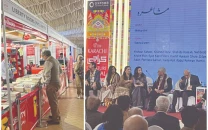

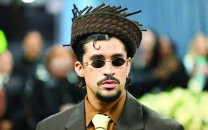
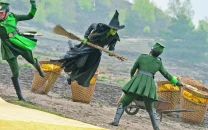
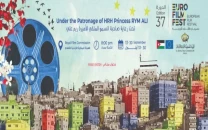













COMMENTS
Comments are moderated and generally will be posted if they are on-topic and not abusive.
For more information, please see our Comments FAQ